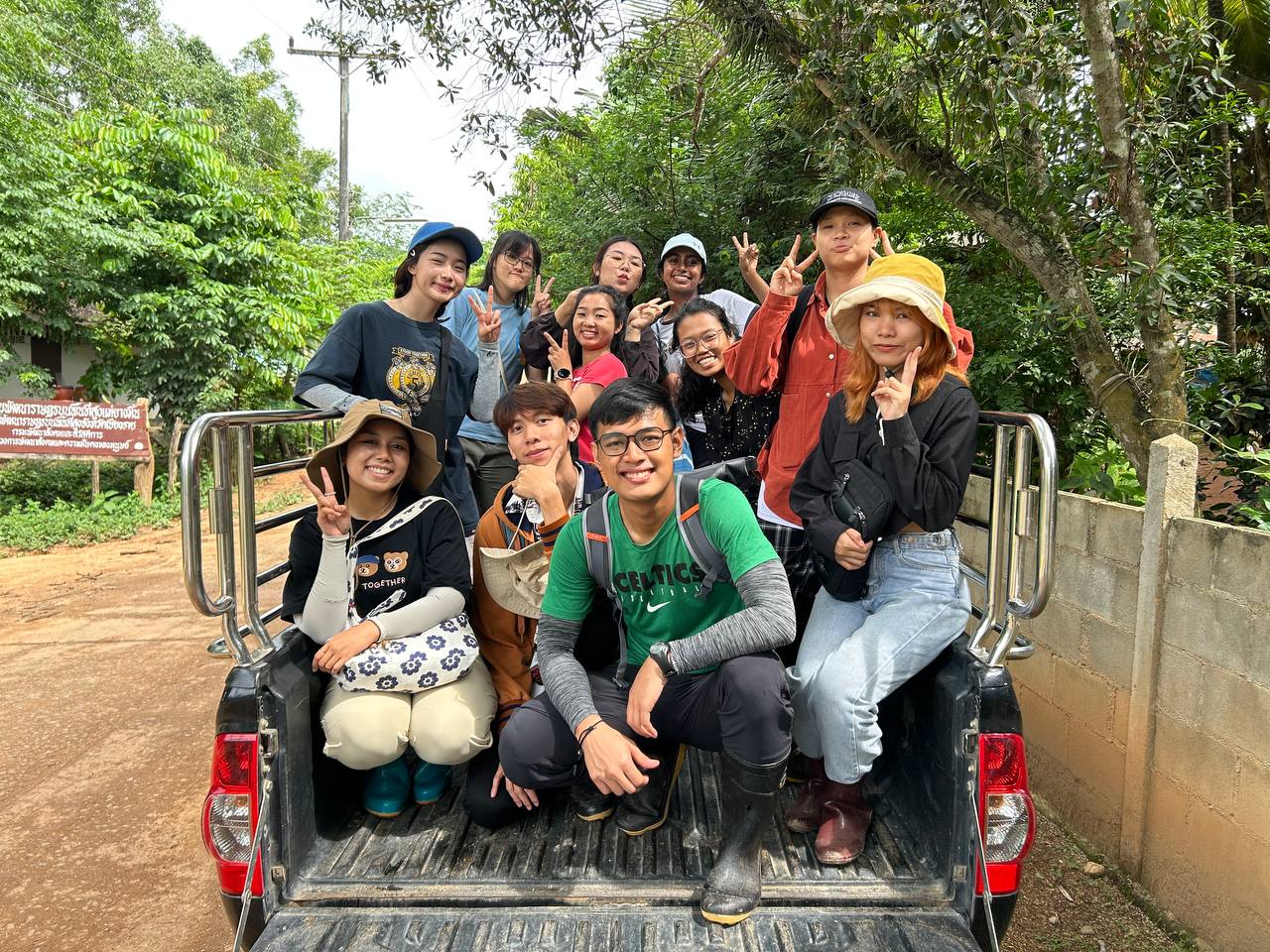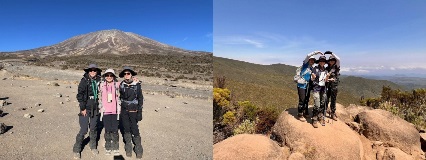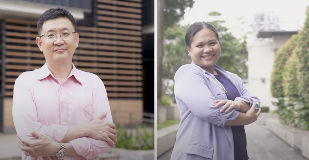When English Language and Linguistics student Ms Tiffany Koh (Class of 2025) graduates, she aims to use her communication skills to help improve healthcare in less-developed nations. “I want a job that is fulfilling and meaningful, such as translating medical documents into accessible and useful information for the public,” said the third-year student, who is currently working towards her dream job as the editor-in-chief for a student-run magazine, the NUS Science Journal Club.
Tiffany on a family trip to Thailand as a child
Her drive stems from a frightening incident that occurred when she was a child on holiday in Thailand with her parents. “My mother and I were staying at a rural village in Chiang Mai when I fell very sick. My mother ran around trying to get help, but she couldn’t speak a word of Thai. She had to call our doctor in Singapore,” she recounted.
Earlier in the trip, her mother pointed out how the HIV and AIDs epidemic was devastating Thailand at the time, in part due to low awareness of the disease. “That has stuck with me too. If you want to help people stay in good health, you must educate them about diseases first. That’s why I want to work in this field,” she said with conviction.
Receiving NUS bursaries, made possible by the generous contributions of donors, has enabled her to pursue the education she needs to achieve her dream. With the bursaries and financial assistance schemes, such as the Enhanced Financial Aid Scheme (EFAS) that came into effect last year, her tuition fees were fully covered, and additional financial support was provided for living expenses, on-campus stay and overseas programmes, easing the financial burden on her low-income family, Now, she only needs to work during semester breaks to cover part her living expenses, rather than throughout the entire year. “I can better concentrate on my studies,” she said.

Husna outside the University of Zagreb Library while on exchange in CroatiaFinancial support has also been vital for Geography student Ms Nur Husna Faqihah (Class of 2025), who aspires to address pressing issues such as border conflicts, environmental conservation and socioeconomic disparities after she graduates. “My goal is to do my part to boost the wellbeing of both people and the planet,” said the fourth-year student.
Receiving NUS bursaries as well as being supported under EFAS, generously funded by donors, has significantly eased her family’s financial burden. “In secondary school and junior college, constant arguments about money at home made it difficult for me to focus on my studies. Although I still juggle part-time jobs to support myself today, the financial assistance from the NUS bursaries has been life changing.”
“With the relief provided by the financial support I received, I am now able to pursue more opportunities, including volunteering, teaching and attending conferences,” Husna elaborated. She participated in a biodiversity restoration conference in Malaysia, conducted a field study in Thailand, and took part in an exchange programme in Croatia, where she explored and collected data on mountainous terrains as well as other types of landscapes.

Besides participating in the biodiversity restoration conference, Husna also helped with translating some of the talks for the participants
“These experiences exposed me to critical development issues and restoration solutions, reinforcing my commitment to make a positive impact on the world,” she shared, as she elaborated on the sustainability initiatives she participated in.
“In the future, I want to give back so that more students can pursue higher education without financial constraints and realise their aspirations too,” Husna concluded, sharing how the financial support from NUS and the University’s generous donors have inspired her to pay it forward in the future.

Husna and team loading up before a ride to the sacred forest in Chiang Rai during her field study trip in Thailand






